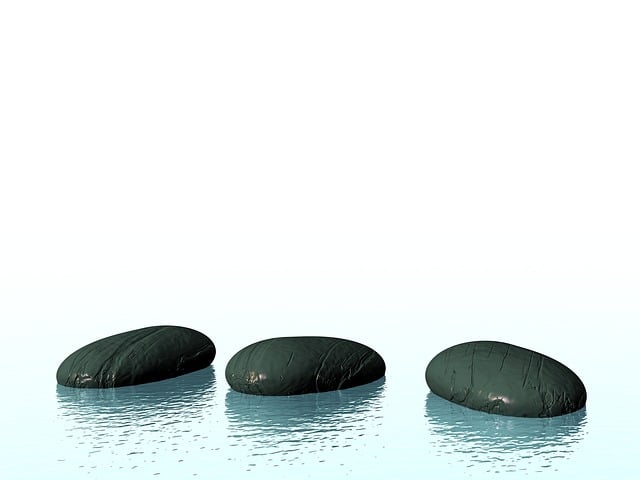Cold plunging—immersion in cold water (50-59°F/10-15°C) after workouts—is a powerful natural tool for athletes' recovery. Scientific research backs its advantages, including reduced inflammation, accelerated muscle repair, and endorphin release for pain relief. It enhances athletic performance by boosting mental resilience and delaying fatigue, while also serving as an injury prevention method. Professional athletes increasingly incorporate cold water therapy, such as ice baths or cold showers, into their routines to achieve better recovery times, enhanced performance, and improved overall conditioning.
Discover the power of nature in your fight against inflammation. This article explores the potential of cold plunges as a natural alternative to anti-inflammatory drugs. From understanding the science behind cold water therapy to its immense benefits for athletes and post-workout recovery, we delve into how incorporating cold immersion into your routine can enhance athletic performance and prevent injuries. Uncover why this age-old practice is gaining traction in modern fitness circles as a game-changer for muscle recovery and overall well-being.
Understanding Cold Plunges: A Natural Approach to Anti-Inflammatory Care
Cold plunges, also known as ice baths or cold water therapy, have gained significant attention in the athletic recovery world. This natural approach involves submerging oneself in cold water, typically around 50-59°F (10-15°C), for a short period after intense physical activity. It’s not just a trend; it’s a time-honored practice with a growing body of scientific evidence backing its numerous benefits.
For athletes, incorporating a post-workout cold water immersion can help reduce muscle soreness and promote faster recovery. The shock of cold water triggers a response in the body, constricting blood vessels to reduce inflammation and sending oxygen-rich blood to muscles, which aids in repair. This method is especially beneficial for those looking to avoid or minimize the use of anti-inflammatory drugs, offering a safe and effective alternative for managing athletic performance and preventing injuries.
How Cold Water Therapy Benefits Athletes and Their Recovery Process
Cold water therapy, or cold plunging, has gained significant popularity among athletes as a natural alternative to anti-inflammatory drugs for athletic recovery. When athletes immerse themselves in cold water post-workout or after intense training sessions, it triggers a series of physiological responses that benefit their bodies. One of the key benefits is reduced muscle soreness and inflammation. The cold temperature helps constrict blood vessels, which can decrease swelling and pain associated with strenuous exercise.
Additionally, cold plunges stimulate the release of endorphins, often referred to as “feel-good” hormones, which can alleviate discomfort and improve overall well-being. This therapy also enhances circulation when athletes rewarm their bodies post-plunge, ensuring optimal nutrient delivery to muscles and faster recovery times. Many professional athletes incorporate ice baths or cold showers into their routines for muscle recovery, injury prevention, and improved athletic performance.
Exploring the Science Behind Cold Plunges and Their Impact on Muscles
Exploring the Science Behind Cold Plunges and Their Impact on Muscles
Cold plunges, or immersing oneself in cold water, have gained significant attention as a natural alternative to anti-inflammatory drugs for athletic recovery. The practice involves briefly exposing the body to water temperatures typically below 59°F (15°C). This shock treatment triggers a cascade of physiological responses designed to protect and repair muscles. One key mechanism is the release of endorphins, our body’s natural painkillers, which can reduce inflammation and alleviate muscle soreness post-workout.
Furthermore, cold water therapy for athletes has been shown to stimulate blood flow, both during and after immersion. This increased circulation helps flush out metabolic waste products that accumulate during intense exercise, reducing muscle stiffness and speeding up recovery. Studies also suggest that ice baths for muscle recovery can enhance athletic performance by improving mental resilience and delaying the onset of fatigue, making them valuable tools for athletes looking to optimize their training routines and prevent injuries in the long run.
Incorporating Cold Therapy into Your Post-Workout Routine for Optimal Athletic Performance
Incorporating cold therapy into your post-workout routine can significantly enhance athletic recovery and overall performance. Cold water immersion, such as a cold plunge or ice bath, is an effective natural alternative to anti-inflammatory drugs. The benefits of this practice include reduced muscle soreness, accelerated recovery time, and improved circulation. When athletes immerse themselves in cold water immediately after intense exercise, it helps to constrict blood vessels, which can decrease inflammation and swelling in overworked muscles.
This form of cold therapy also promotes the release of endorphins, natural painkillers that can alleviate post-workout discomfort. Additionally, regular cold water immersion sessions may contribute to injury prevention by strengthening muscle resilience and promoting a more efficient repair process. For athletes, integrating a cold plunge into their recovery routine can be a game-changer, fostering optimal athletic performance while steering clear of potential side effects associated with pharmaceutical interventions.
Cold plunges offer a natural alternative to anti-inflammatory drugs, providing significant benefits for athletes’ recovery and overall athletic performance. By incorporating post-workout cold water immersion into their routines, individuals can experience reduced muscle soreness, accelerated recovery times, and enhanced resilience against injuries. The science behind cold therapy reveals its positive impact on inflammation and muscle repair, making it a valuable tool in the quest for optimal athletic excellence. Whether you’re an elite sportsman or a fitness enthusiast, exploring the power of cold plunges could be a game-changer for your training regimen and overall well-being.
